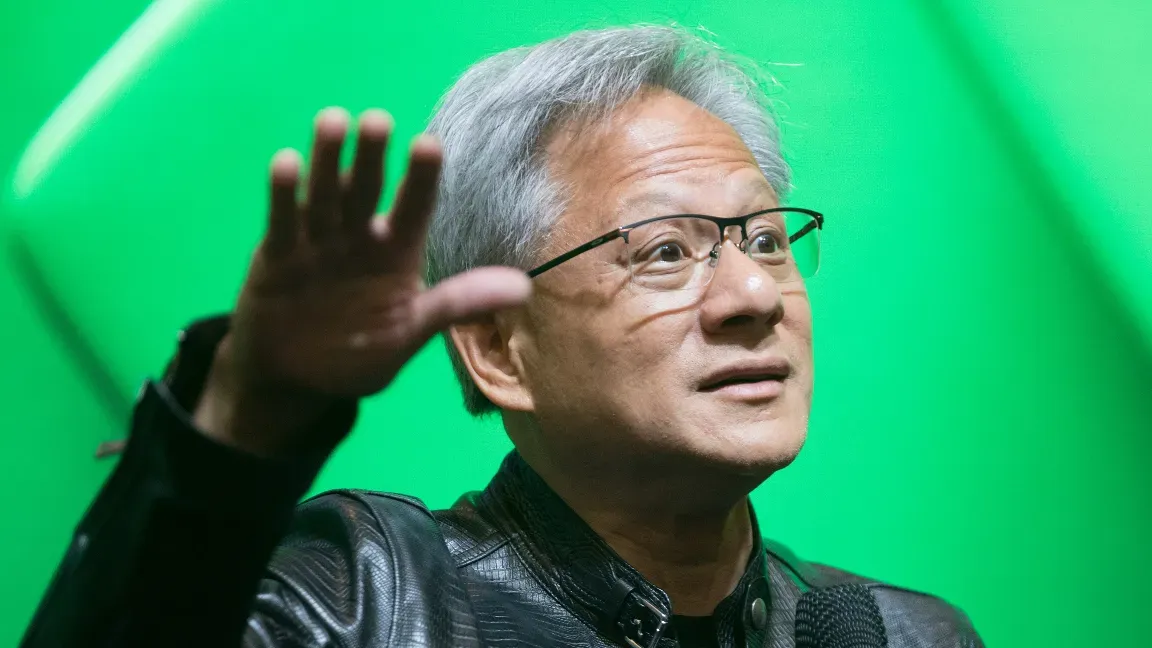The artificial intelligence industry is witnessing a fascinating clash of perspectives as two of its most influential leaders stake out opposing positions on AI's impact on employment. While Anthropic's CEO Dario Amodei has suggested that AI could eliminate up to half of white-collar jobs, NVIDIA's Jensen Huang is pushing back with a markedly different vision of our AI-powered future.
The Great AI Employment Debate
This disagreement between tech titans isn't just academic posturing—it represents fundamentally different philosophies about how AI will reshape the modern workplace. Amodei's warnings echo concerns shared by many economists and labor experts, while Huang's counter-narrative suggests a more collaborative future between humans and artificial intelligence.
The timing of this debate couldn't be more critical. As organizations across industries rapidly adopt AI technologies, from chatbots to automated data analysis, workers and employers alike are grappling with uncertainty about what roles will remain uniquely human.
Anthropic's Cautionary Stance
Dario Amodei's position stems from Anthropic's deep research into large language models and their capabilities. His company, which developed the Claude AI assistant, has witnessed firsthand how quickly AI can master complex cognitive tasks traditionally performed by knowledge workers.
Amodei's concerns focus on several key areas:
- Document analysis and legal research - traditionally lawyer-intensive work
- Financial modeling and analysis - core functions of many banking and consulting roles
- Content creation and marketing - from copywriting to campaign strategy
- Customer service and support - increasingly automated through AI chatbots
The Anthropic CEO's predictions aren't pulled from thin air. Recent studies have shown AI systems can now pass professional examinations, from the bar exam to medical licensing tests, suggesting that many specialized knowledge domains are within AI's reach.
NVIDIA's Optimistic Counter-Vision
Jensen Huang's disagreement comes from a different vantage point. As the leader of the company providing the computational backbone for most AI systems, Huang sees AI as an amplifier of human capability rather than a replacement.
NVIDIA's CEO argues that AI will create new categories of jobs while transforming existing ones:
The Augmentation Argument
Rather than eliminating positions, Huang contends that AI will make workers more productive and valuable. A financial analyst armed with AI tools can process vastly more data and generate deeper insights. A marketing professional can test hundreds of campaign variations and optimize performance in real-time.
New Job Categories Emerging
The AI revolution is already creating entirely new roles:
- AI prompt engineers who specialize in getting optimal results from language models
- AI ethics officers ensuring responsible deployment
- Human-AI collaboration specialists designing workflows that blend artificial and human intelligence
- AI trainers and fine-tuners customizing models for specific industries
Historical Precedent: Technology's Track Record
History suggests both perspectives may contain elements of truth. Previous technological revolutions eliminated certain jobs while creating others, often in unexpected ways.
The industrial revolution displaced agricultural workers but created manufacturing jobs. The computer revolution eliminated typing pools but created entire industries around software development and digital marketing. The internet destroyed some retail jobs but birthed e-commerce, social media management, and digital content creation.
However, AI presents unique challenges. Unlike previous technologies that primarily automated physical tasks, AI directly competes with cognitive work—the domain that has traditionally provided economic mobility for educated workers.
The Middle Ground: Transformation Over Elimination
The reality likely lies between these two positions. Rather than wholesale job elimination or seamless augmentation, we're probably facing a period of significant workplace transformation.
Some roles will indeed become obsolete, particularly those involving routine cognitive tasks like basic data entry, simple analysis, or standardized writing. However, new positions requiring uniquely human skills—creativity, emotional intelligence, complex problem-solving, and strategic thinking—will likely emerge.
The key factor will be adaptability. Organizations and workers who embrace AI as a collaborative tool while developing complementary human skills will thrive. Those who resist or fail to evolve may indeed face displacement.
Preparing for an AI-Integrated Future
Regardless of which CEO proves more accurate, the message for today's workforce is clear: adaptation is essential. This means developing skills that complement rather than compete with AI—creative problem-solving, interpersonal communication, strategic thinking, and the ability to work alongside intelligent systems.
The debate between Amodei and Huang ultimately reflects the uncertainty inherent in any technological revolution. While we can't predict the exact future, we can prepare for multiple scenarios by staying informed, remaining adaptable, and focusing on developing uniquely human capabilities that will remain valuable regardless of how AI evolves.
Target Audience: Business professionals, tech industry workers, HR leaders, policy makers, and anyone interested in the intersection of AI and employment.
